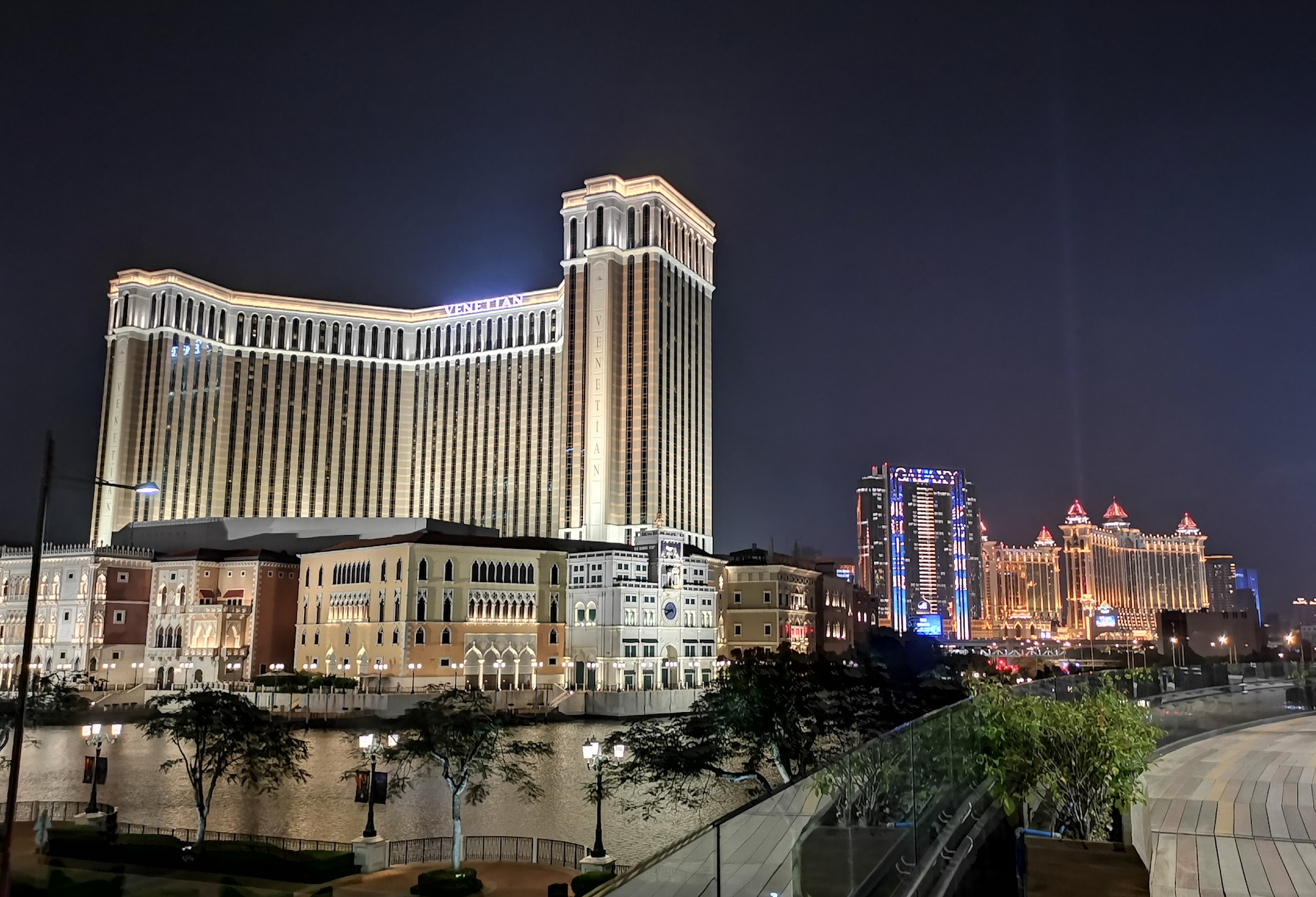Thailand Approves Gambling Law
Many people enjoy betting games, but in Thailand, they face a big problem. Up until now, most forms of gambling ... Continue... The post Thailand Approves Gambling Law appeared first on BettingGods.com.

Many people enjoy betting games, but in Thailand, they face a big problem. Up until now, most forms of gambling have been illegal. This has led to a lot of secret gambling places that can be unsafe and unfair.
But things are starting to change.
On January 13, 2025, the Thailand Cabinet made a big decision. They approved a new law called the Integrated Entertainment Business Act. This means that for the first time, casinos and other types of betting games will be legal in Thailand.
Our blog post will show you how this change could make gambling safer and more fun in Thailand. Keep reading to find out more!
Approval of the Integrated Entertainment Business Act

The Thailand cabinet has approved the Integrated Entertainment Business Act, aiming to legalise gambling and casinos in the country. Prime Minister Paetongtarn Shinawatra played a pivotal role in spearheading this legislation, which also involves considerations such as economic growth and tourism development.
Details of the draft law
Thailand’s Cabinet has given the green light to a draft law aiming to bring legal gambling into the country. The proposed legislation, known as the Integrated Entertainment Business Act, sets strict guidelines for where and how casinos can operate within Thailand.
Under this new act, any casino must be a part of an integrated resort. These resorts are not just about gambling; they need to offer at least four attractions that do not involve wagering money.
This approach ensures that these venues contribute more broadly to tourism while limiting the space dedicated solely to gambling to no more than 5% of the total area.
Licences for running casinos come with significant terms and conditions attached. They’re valid for 30 years but require an evaluation every five years to ensure compliance with regulations.
If operators pass these evaluations, they might extend their licence for up to another decade upon renewal. This careful oversight aims at fostering responsible growth in Thailand’s entertainment and tourism sectors, creating jobs and boosting state revenue without encouraging excessive gambling among Thai citizens or visitors.
Motivation for legalising gambling
The Thai government sees legalising gambling as a key move to fight against widespread illegal betting. By introducing regulated casinos, officials aim to protect the public and add more money to state funds.
This decision follows the success of nearby countries that have seen major benefits from their large entertainment complexes with casinos.
Another big reason is enhancing tourism and bringing in investments. Casinos are expected to boost visits from tourists, especially those who come from other places in Southeast Asia or further abroad.
With examples like Singapore’s thriving casino scene boosting its own economy, Thailand hopes to replicate this success, drawing more international visitors, creating jobs, and growing its overall economy.
Legal casinos are part of a wider plan to make Thailand’s tourism sector stronger while dealing with the problem of illegal gambling venues.
Key Features of the Draft Casino and Gambling Bill
The draft law outlines specific requirements for casinos, including designated entertainment complexes and theme parks. It also establishes detailed terms and conditions for obtaining a casino license, encompassing application processes and associated fees.
Casino requirements
Thailand is setting new rules for casinos in its Integrated Entertainment Business Act. These regulations will change the future of gambling in Thailand. Here’s what casinos need to do:
- Be part of larger entertainment complexes. This means casinos can’t stand alone; they must join with hotels, stadiums, concert halls, theme parks, restaurants, clubs, and retail spaces.
- Offer at least four non-gambling attractions. A casino must have more than just games. It should include other forms of entertainment to attract a wide range of visitors.
- Limit gaming areas to 5% of the total resort space. Casinos need to keep most of their space for non-gambling activities.
- Apply for and secure a licence from the Thai government. This involves meeting specific standards set by authorities and paying any required fees.
These requirements are part of Thailand’s efforts to boost tourism, create jobs, and increase state revenue through legalised gambling. Prime Minister Paetongtarn Shinawatra believes this move will help grow the Thai economy by attracting more foreign visitors and promoting sustainable tourism alongside man-made destinations like Singapore’s casinos. With clear guidelines in place, Thailand is ready to compete on Southeast Asia’s entertainment stage while tackling issues like illegal gambling and gambling addiction head-on.
Licence terms and conditions
The Thailand cabinet recently made a significant move by approving the draft law for gambling. This law outlines strict terms and conditions for licences that businesses must follow to operate casinos legally in Thailand. Here are the key details:
- Licences will be granted for a duration of 30 years. This long term ensures stability and commitment from casino operators.
- Every five years, the government will evaluate the performance and compliance of these casinos. This regular check ensures they meet all legal requirements.
- After the initial term, licence renewal can extend up to 10 more years. This provides an opportunity for successful operations to continue their contribution to tourism and state revenue.
- To apply, companies must be registered in Thailand. This rule encourages local business participation and ensures that profits contribute to Thailand’s economy.
- Applicants need to show they have paid-up capital of at least THB 10 billion (approximately USD 300 million). Such a high financial requirement guarantees that only serious and financially stable investors can enter the market.
These conditions set by the Thai government aim to regulate the gambling industry effectively. They also seek to boost tourism, create jobs, and increase state revenue through well-managed entertainment complexes like integrated resorts and casinos.
Application and licencing fees
Understanding the framework of application and licensing fees is crucial for entities aiming to enter Thailand’s emerging casino market. Here’s a breakdown in a simplified table format:
Requirement Details Paid-up Capital At least THB 10 billion Initial Licensing Fee THB 4.9 billion Annual Fees THB 1.0 billion Number of Licenses Issued Five License Locations Two in Bangkok, one each in Pattaya, Chiang Mai, and Phuket
This table outlines the financial commitments required from applicants seeking a casino license in Thailand. With a hefty initial licensing fee and significant annual fees, the Thai government is setting a high standard for entry into this market. The distribution of licenses aims to enhance tourism and economic growth across various key locations.
Expected Impact of Legalising Casinos
The legalisation of casinos in Thailand is anticipated to drive a surge in tourism, particularly from foreign visitors. This expected growth has the potential to create numerous job opportunities and significantly contribute to the country’s economic development.
Boost in tourism
Thailand’s decision to approve casinos aims to establish the country as a leading location for international tourists. The Deputy Finance Minister, Julapun Amornvivat, anticipates that this initiative could lead to a potential surge in tourism revenue by THB 220 billion.
Inspired by the approach of Singapore, Thailand is committed to developing entertainment complexes and integrated resorts to magnetise more international sightseers.
Our objective is to improve tourism functionality and offer a distinct, unrivalled tourist experience.
Envision this new legislation as a significant leap to heightening Thailand’s tourism sector. Casinos in several Thai cities will complement theme parks and human-made destinations as prime attractions.
This approach aims to boost the count of foreign visitors and encourages steady tourism growth throughout Southeast Asia.
Increase in foreign visitor numbers
The Thai government forecasts that sanctioning gambling would catalyse a noticeable rise in international tourist influx. They anticipate a growth between 5% and 10%. The approach borrows ideas from nearby nations who have experienced prosperity through extensive entertainment centres.
Through the endorsement of casinos, they plan to draw in a larger demographic from overseas eager for enjoyment and adventure.
This initiative is set to enhance tourism and establish Thailand as a prime spot for travellers in search of both natural beauty and human-made entertainment. The nation is primed to embrace the investments flowing from this fresh legislation, promising an elevation in state and tourism revenue alike.
Drawing inspiration from examples like Singapore, Thailand envisions its comprehensive resorts acting as lures for foreign visitors, thereby boosting the national economy and enriching the cultural milieu.
Job creation
Thailand’s approval of the Integrated Entertainment Business Act is projected to create between 9,000 to 15,000 new jobs. This surge in job opportunities will be witnessed within the gambling and tourism sectors.
The move towards legalising casinos aims not only to address illegal gambling issues but also to safeguard the public and generate state revenue, contributing significantly towards economic growth and sustainable tourism development.
The endorsement of casinos is expected to play a pivotal role in providing employment opportunities. By promoting integrated resorts and entertainment complexes, it supports the government’s commitment to boosting job creation while enhancing Thailand’s tourism sector.
Conclusion
In summary, the approval of the Integrated Entertainment Business Act marks a significant shift in Thailand’s approach to gambling and casinos. The practical measures outlined in the draft law demonstrate an effective strategy to combat illegal gambling while also boosting tourism development.
Legalising casinos is set to have a substantial impact on the country’s economy, particularly through increased tourism and higher revenue from foreign visitors. By embracing this change, Thailand positions itself as a key player in the ever-evolving world of entertainment complexes and integrated resorts across Southeast Asia.
Moreover, these steps are crafted for sustainable tourism growth and job creation within the Thai citizens. This decision not only supports economic growth but also unveils the potential for more than just financial gains; it aspires to provide a unique experience for both domestic and international visitors, aimed at enhancing their time spent within Thailand’s borders.
FAQs
What is the new gambling law approved by the Thailand Cabinet?
The new law legalises casinos in Thailand, a move led by Prime Minister Paetongtarn Shinawatra and her government to boost state revenue and foreign visitor numbers.
How will this decision impact tourism in Thailand?
This law aims at boosting tourism revenues through integrated resorts that include entertainment complexes, theme parks, and man-made destinations. The government expects it to attract more foreign visitors while promoting sustainable tourism development.
What are some potential benefits of this legislation for Thai citizens?
Beyond increasing tourism revenue, the introduction of legalised gambling could lead to job creation within the entertainment and hospitality sectors. Also, Deputy Finance Minister Julapun Amornvivat believes it would be beneficial for economic growth.
Are there any concerns about this new legislation?
Yes, conservative factions within the Buddhist country have expressed worries about potential increases in illegal gambling activities and gambling addiction among Thai citizens as a result of these policies.
How does this compare with other Southeast Asian countries’ laws on gambling?
Singapore’s successful implementation of integrated resorts has influenced this move by Thailand’s House of Representatives towards legalising casinos as part of their strategy for economic growth.
What are the next steps following cabinet approval?
Following cabinet approval from Prime Minister Shinawatra’s government, draft laws will proceed to the Council of State before being presented to Parliament’s House Of Representatives for further deliberation.
The post Thailand Approves Gambling Law appeared first on BettingGods.com.




























